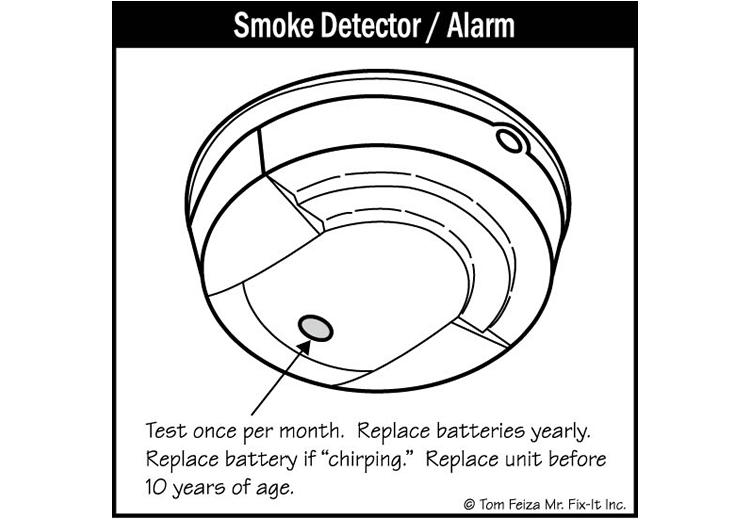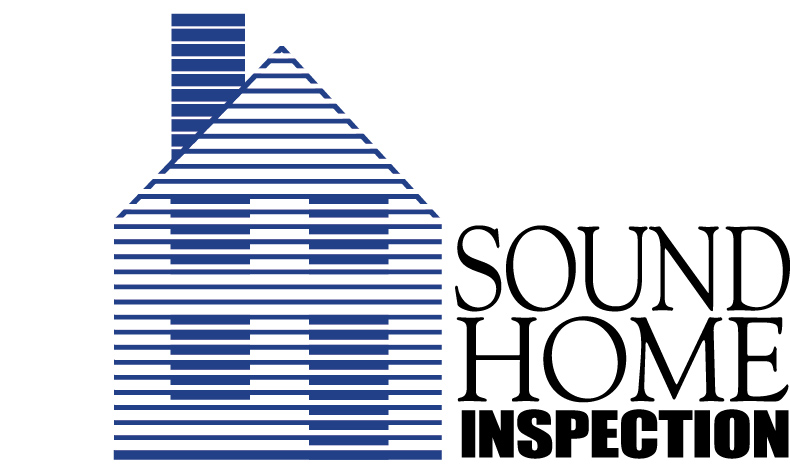Electrical System
Electrical System Inspections
Your home’s electrical system is everything from the meter, where the electricity enters the house, to the individual outlets. This includes the breaker box, any ground fault circuit interrupters (GFCIs), the wiring and the outlets.
So much can go wrong with your electrical system if it isn’t installed and maintained correctly, up to and including a fire in your walls. A thorough home inspector will look at how many outlets are attached to each circuit, the state and age of the wiring, the set-up and soundness of the breaker box and the individual outlets themselves. He or she will also check to make sure that you have GFCIs in high-moisture areas, like the kitchen and the bathroom, and that hard-wired light fixtures are installed correctly.
To schedule your home inspection, call
(860) 445-1236 today.
Electrical System Items Inspected
Want to learn more?
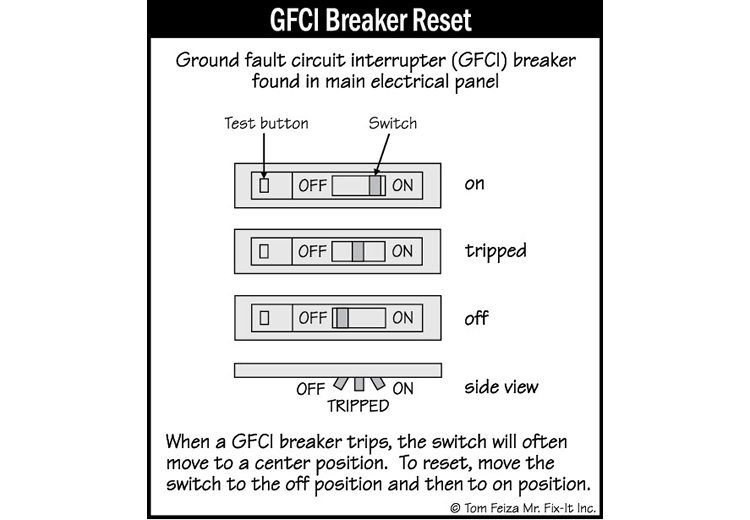
Branch Circuit Conductors, Overcurrent Devices and Compatability of Their Amperage and Voltage Inspections
An overcurrent device is an automatic safety device that prevents any circuit from getting too much electrical current. The branch circuit connects the individual overcurrent devices (fuses or circuit breakers) to the end fixture, outlet or mechanical system.
All components of your home’s electrical system should be inspected thoroughly to make sure that there are no fire hazards. The inspector will determine that these devices are installed correctly and operational, as well as check the compatibility of the wire size between the branch circuit conductors and the overcurrent devices.
To schedule your home inspection, call
(860) 445-1236 today.
Connected Devices and Fixtures Inspections
When talking about inspecting a home’s electrical system, “connected devices and fixtures” refers to ceiling fans, hard-wired light fixtures, receptacles, light switches and other, similar devices.
A home inspector is required to check out a representative sampling of the connected devices and fixtures in the home. A thorough inspector will visually inspect and test all that he has access to. That means looking to see that these devices are wired correctly, are grounded properly, are operational and meet suggested safety standards. He’ll also check and test that ground fault circuit interrupter (GFCI) outlets and receptacles are properly and safely wired and operational, such as near sinks and other water features.
To schedule your home inspection, call
(860) 445-1236 today.
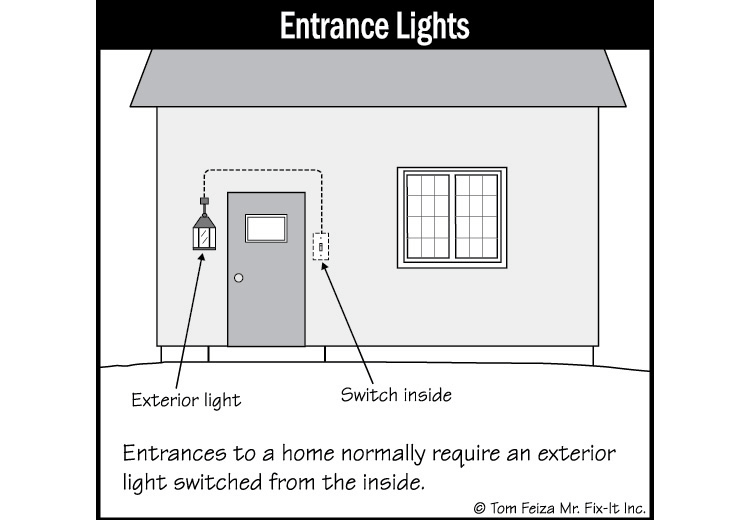
Want to learn more?
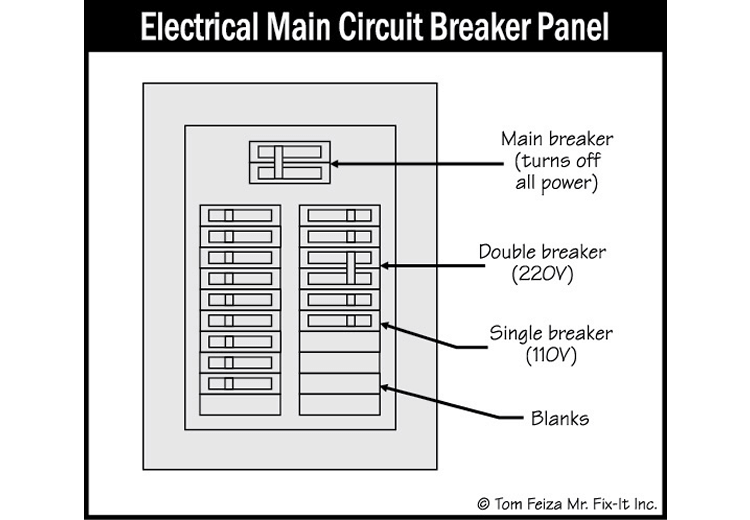
Location of Main and Distribution Panels
The main and distribution panels connect to the electric power feed to the house and divide the electrical current into circuits. Each circuit has a breaker or a fuse which is housed on distribution panels in the breaker or fuse box. This system also has a main disconnect switch that turns off all electrical power to the house.
Anything dealing with electricity in the house always carries the risk of sparks or fire and must be handled with care. With the main and distribution panels, the individual circuits must all have breakers or fuses and these must all be labeled correctly. The system must also be assembled so that no one circuit carries too much amperage.
To schedule your home inspection, call
(860) 445-1236 today.
Operation of GFCI Inspections
Ground Fault Circuit Interrupters (GFCIs or GFIs) are outlets with built-in circuit breakers that are designed to cut the electrical current to an outlet in a fraction of a second if the outlet receives a surge of electricity. GFCIs are found in areas where water (a major conductor of electricity) may be present, such as in bathrooms and kitchens.
GFCIs are an important safety feature and required by ASHI standards to be on outlets that are located near water sources. They prevent a person from receiving a fatal shock should the outlet malfunction or there be a surge of electricity. A home inspector will check to see that GFCIs are installed where they should be and that these outlets are in good working condition.
To schedule your home inspection, call
(860) 445-1236 today.
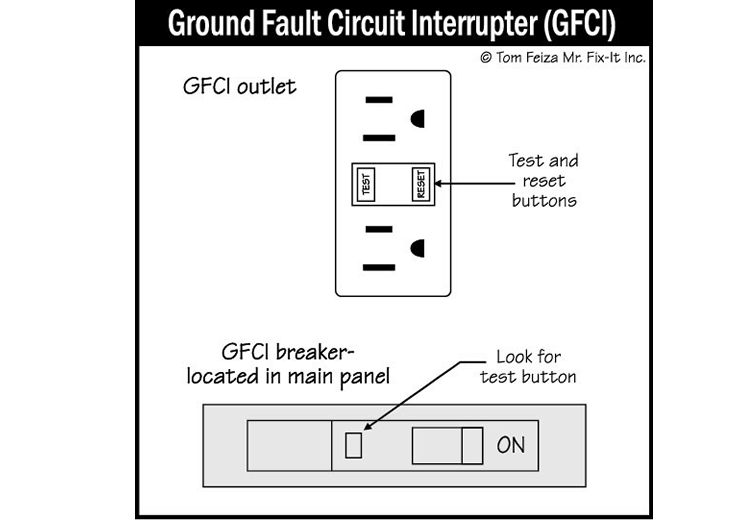
Want to learn more?
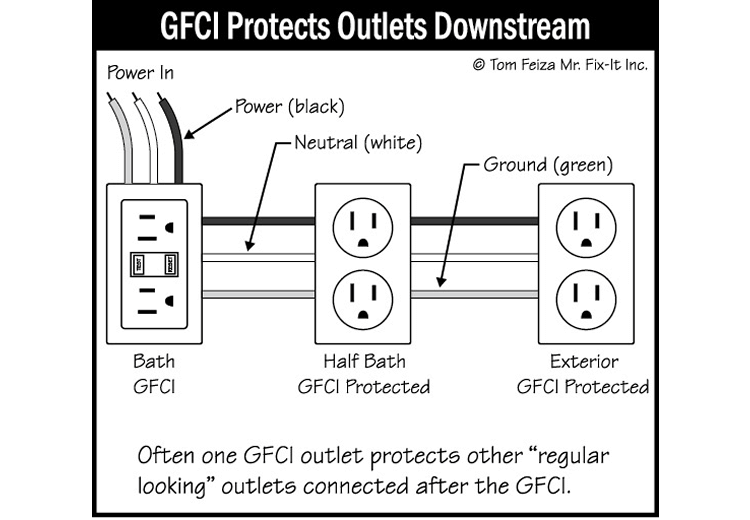
Polarity and Grounding of Receptacles
Electrical receptacles (or outlets) have both a hot and a neutral pole. Reverse polarity happens when the neutral wire gets connected to the incorrect side of the outlet. Reverse polarity creates a potential shock hazard. This effect is amplified in the presence of moisture and/or water. Because of this, outlets that are located near plumbing fixtures or moisture, such as those in bathrooms, kitchens, the outside of the building and garages, are required to be GFCI (Ground Fault Circuit Interrupter) outlets or breakers.
GFCI outlets initiate an instant break in the electrical current whenever they register a surge in voltage. This prevents sparks that could lead to fires or the risk of electrocution. The home inspector will make sure that GFCIs are installed where they need to be and that all are functioning properly.
To schedule your home inspection, call
(860) 445-1236 today.
Service and Grounding Equipment, Main Overcurrent Device, Main and Distribution Panels Inspections
The service and grounding equipment provide a back-up grounding mechanism should there be a surge or malfunction with the electrical system. The main over-current device (aka, main service disconnect) is the breaker that turns off all electrical power to the house. It is usually found in the main electrical panel, the site where power enters the house and is divided into individual circuits. The distribution panel (aka, “main circuit breaker” or “fuse panel”) contains the individual breakers or fuses that connect to each circuit.
Inspecting all of the electrical equipment in a home is important because of the potential for electrical fires and electrocution from faulty wiring. The inspector will check to make sure all equipment is installed and working properly and that the circuits and fuses are correctly labeled.
To schedule your home inspection, call
(860) 445-1236 today.
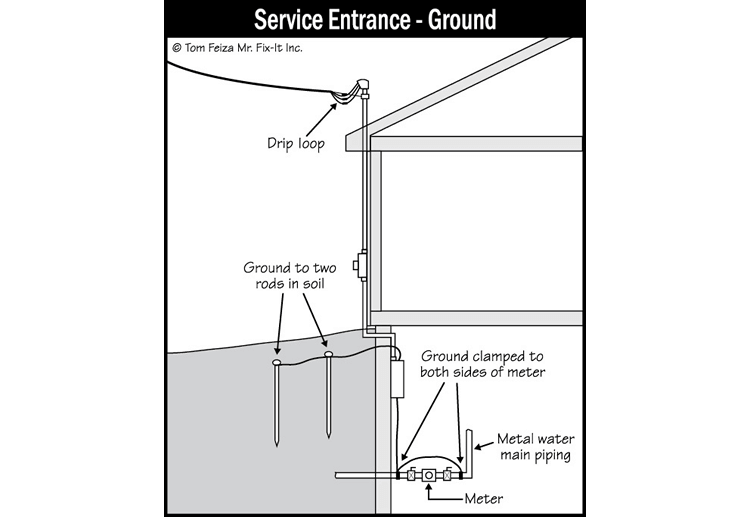
Want to learn more?
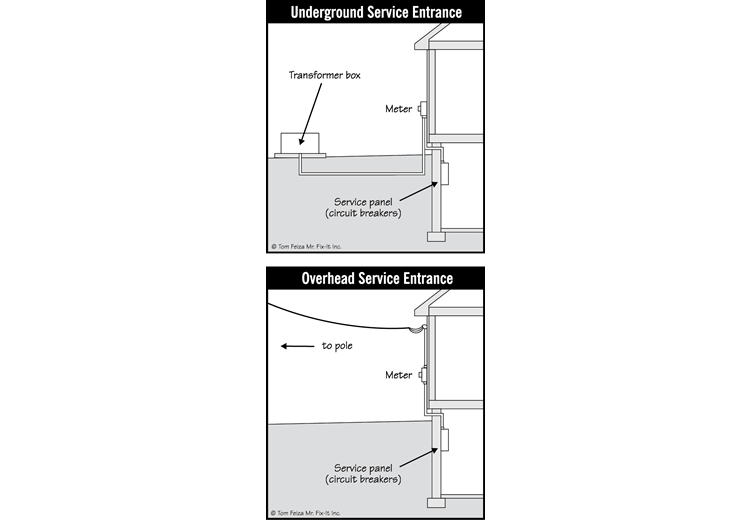
Service Entrance Conductor Inspections
Service entrance conductors (aka, “service feed wire”) run from the weather-head (exterior point of attachment) from the utility pole to the electric panel (usually the circuit breaker box). For most homes, the service entrance conductor will be located on or near the roof and tie into the overhead electrical lines. In neighborhoods with underground electrical lines, the service entrance conductor will be located near the foundation.
Wherever there is electricity, there is the potential for safety problems. During the home inspection, the inspector will make sure that the service entrance conductor is undamaged, is the proper size for the material used and is located the required distance from the roof, windows, doors, walkways and driving surfaces.
To schedule your home inspection, call
(860) 445-1236 today.
Smoke Alarm Inspections
Smoke detectors are small devices that alert occupants of the house to the presence of smoke. They emit a shrill sound, designed to wake someone that’s sleeping in the event of a fire. Smoke detectors can be battery-operated or hard-wired into your electrical system. They should be placed near bedrooms and near possible sources of fire, such as a kitchen.
Having properly installed and properly functioning smoke detectors is necessary for the safety of your family. A home inspector will check to see that you have detectors where you need them and that these devices are working properly. The US Department of Housing and Urban Development estimates that up to one-third of America’s smoke detectors aren’t functioning properly, most often because of a dead battery.
To schedule your home inspection, call
(860) 445-1236 today.
